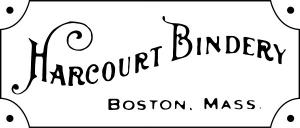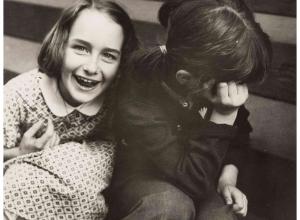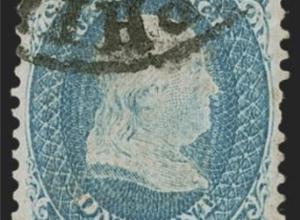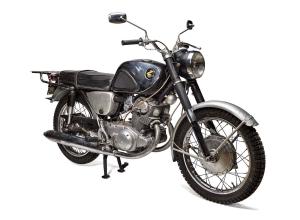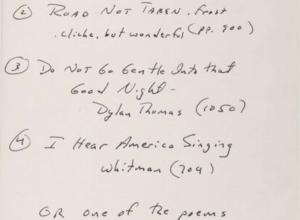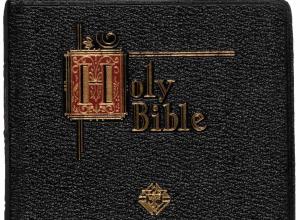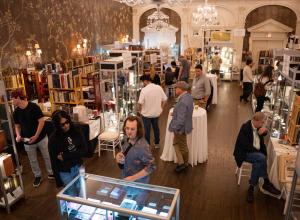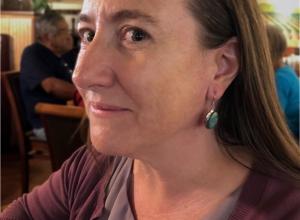Bright Young Librarians: Nora Epstein
Our Bright Young Librarians series continues today with Nora Epstein, a Special Collections & Archives Librarian with DePaul University in Chicago:
 What is your role at your institution?
What is your role at your institution?
In September, I joined the DePaul University Library as a Special Collections and Archives Librarian. Like many Special Collections Librarians, I do a little of everything from outreach and exhibit curation to collection development and reference. However, the aspect of my job I devote the most time to (and perhaps my favorite) is leading rare book instruction sessions. Last year, our small department taught an impressive 71 instructions sessions, the majority of which were for undergraduate students. This regular interaction with mostly first time Special Collections patrons has changed the way I understand Special Collections Librarianship. I now see my role as providing the framework that allows our patrons to question and interpret the primary sources before them.
How did you get started in rare books?
I first became aware of Special Collections Librarianship when I read Audrey Niffenegger's The Time Traveler's Wife in ninth grade (you can imagine my excitement when years later, while doing a practicum in the Newberry Library's conservation lab, I was assigned a project started by Niffenegger decades earlier.) But it was not until I entered Brandeis University's Special Collections on a whim in my senior year of college that I realized that I could have a career that combined my love of bookbinding and paper arts with my degree in history. That day, I asked to volunteer in the Special Collection and I have never looked back. Since then I have interned or worked for the Brandeis University Archives and Special Collections, the Budapest History Museum, the Newberry Library, the Northwestern University Archives, Northwestern University's McCormick Library of Special Collections, The Universal Short Title Catalog, Book History Online, and finally, DePaul University's Special Collections and Archives.
Where did you earn your MLS/advanced degree?
I completed my MLIS at the Illinois Urbana-Champaign in May of 2014 and shortly thereafter began a Master of Letters degree in Book History at the University of St Andrews, in Scotland. While working on my degree at St Andrews, I was fortunate enough to have my research guided by remarkable historians like Andrew Pettegree, Bridget Heal, and Matthew McLean, and been taught Material Bibliography by fellow Bright Young Librarian, Daryl Green.
Favorite rare book / ephemera that you've handled?
So far nothing has beaten the overwhelming joy of discovery I felt while researching my Master's thesis in the British Library and turning a page of a 1578 edition of A Booke of Christian Prayer (STC 6429) to see a contemporary marginal note that perfectly supported my thesis. I feel exceptionally privileged that now it is my job to help facilitate those same moments for my patrons.
What do you personally collect?
The amount of light and humidity in my apartment would make it a death trap for the books I would like to collect. Instead, I have a serious collection of fine papers that I justify by telling myself that they are destined for a future bookbinding project, but almost never make it into a book. I also have a hard time passing up a publishers' binding when I come across them, especially ones that look like they might be in need of repair.
What do you like to do outside of work?
The only thing I do outside of work these days is plan my terrifyingly imminent wedding. But once I am safely down the aisle, I would like to start on a new research project and expand my bookbinding techniques.
What excites you about rare book librarianship?
Just about everything about rare book librarianship excites me! I love being able to share my passion for book history through instruction sessions, outreach, and reference questions. Also, having unfettered access to a wide range of texts is a perk that cannot be overlooked.
Thoughts on the future of special collections / rare book librarianship?
With the increasing availability of digital facsimiles, I think it is our role as stewards to focus on books as physical objects. More and more, it is libraries' rare holdings that distinguish them from each other and it is our job as librarians to preserve these objects, while championing tactile primary source research. While it is certainly possible to do textual analysis from the comfort of your computer screen, hints about use, market reception, and the cultural impact of a work can often only found when handling the item in person. As someone whose research focuses on the material history of the book, I find this consequence of mass digitization exciting. In my rare book instruction sessions I almost never get questions about the text, rather our students (who for the most part have never engaged with primary sources) inquire about the "old book smell" or why a book has fore-edge clasps.
Any unusual or interesting collection at your library you'd like to draw our attention to?
We have quite a few interesting collections that range from Napoleoniana to prison zines. Personally, I think one of our most fascinating works is the commonplace book of Louis de Marillac, the father of St. Louise de Marillac (1573-1632). A section of this unique manuscript was recently added to the Newberry Library's collaborative French Renaissance Paleography project.
Any upcoming exhibitions at your library?
Like many of our colleagues, DePaul will be mounting an exhibit to commemorate the 400th anniversary of Shakespeare's death. The exhibit I am curating, Shakespeare's Sources, will focus on the works that informed and inspired some of the bard's most famous works.





